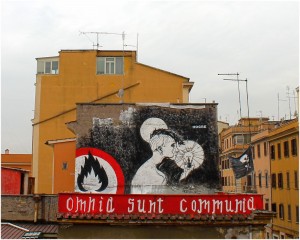
In order to envision a Just Transition from the dominant paradigm of extractive, exploitative and unfettered economic growth towards a more local, living and interlinked economies, EDGE Funders Alliance has been working together with funders and social movements to identify the narratives that promote systemic alternatives and need support. It encourages funders to provide funding to initiatives that help to build the new.
As part of this co-learning initiative, EDGE launched on 26 September the new Just Transition #EDGEtalk series. The first webinar was an introduction to the Commons, its movements in Europe and beyond and how funders can further engage in this field. According to the Commons Network, the Commons are represented by civic and community initiatives that work to vitalize urban, rural, scientific and digital commons, and promote a future guided by democratic participation, social equity and environmental sustainability.
Under the title “Sympathy for the Commons”, the webinar brought together perspectives from the movements and from foundations that are supporting Commons initiatives.
From the movements perspective, Stacco Troncoso (P2P Foundation) provided a general but sharp introduction to the Commons as both transformative practices by citizens movements and a new fresh agenda for progressive politicians. Stacco mentioned Barcelona, Madrid and Naples as examples of cities which are governed by representatives from the commons movements. To Stacco, Commons’ initiatives are supposed to be free, fair and sustainable. Free, because it has to be open and public. Fair, because it should serve everyone, equally. And sustainable, because it has to be embedded in nature and accordingly to the planetary limits.
To explain about the European Commons Assembly, which will take place on the 16th of November, in Brussels, Sophie Bloemen (Commons Network) pointed out that it is important to build bridges between commons thinking and policy making and try to articulate joint policy proposals. Taking place at the European Parliament, the Assembly has an important symbolic aspect as it may open space to exchanges with Members of European Parliament towards a more participatory democracy to the EU level.
Bringing the perspective of the foundations, Vivian Paulissen (European Cultural Foundation) presented the programme “Connected Action for Commons”. Making a relation with the Commons concept, Vivian explained Tawiza. From the North African Berber culture, the concept of Tawiza means solidarity and collaboration and it is a cultural tradition that pictures relations among people, the land and resources they share and co-govern.
Following this principle, the European Cultural Foundation supports the Connected Action project, which is a network of initiatives that work together on topics like public space, cultural governance and democracy. It collects good cultural examples of citizens who are developing new participatory democratic practices.
Heike Löschmann (Heinrich Böll Foundation), explained why supporting the search for theories and practice of the commons can become a path for philanthropy to catalyse system change. She pointed out that we have to go beyond social and ecological reforms although they are important to enable a bigger transformation. She also highlighted that the world is seeing the privatization and commoditization of economic decision-making and nature, and we have to avoid the same process to happen with democracy. Therefore, it is fundamental to support actual practices and imagine and enable alternatives, searching for a common-oriented society.
The #EDGEtalk Just Transition webinar series will promote webinars on systemic change and the role of philanthropy and will bring speakers to discuss social and environmental justice.
You can watch the full webinar recording below.
EDGEtalk – Sympathy for the Commons from EDGE Funders Alliance on Vimeo.
